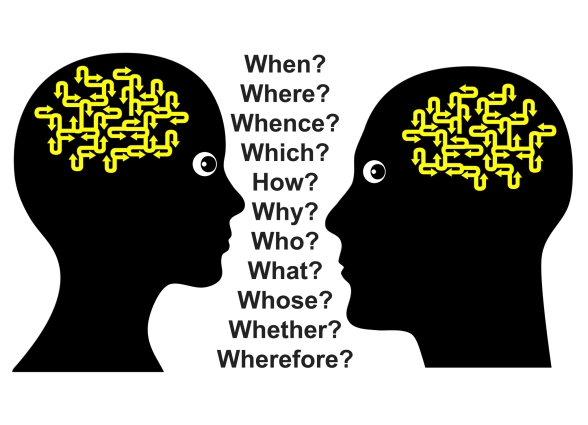Our district Teaching and Learning team is taking part in Cognitive Coaching training. This is a series of eight professional days, two at a time spread over a series of months. Today was our 3rd day of this training. I’m finding these very informative and practical for my practice and my personal learning. Today we were discussing questioning. After writing a previous post here, I realized I left quite a bit unsaid and unaddressed. While I definitely need to be monitoring my mindset both in planning and facilitating professional learning, there is so much more that needs to be considered.
Questions are hugely important on so many levels. Our facilitator left us today with this thought:
“You can tell whether a man is clever by his answers.
You can tell whether a man is wise by his questions.”
Naguib Mahfouz (Nobel Prize Winner)
Now I would definitely like to be counted among the wise, in which case, I need to be asking the right questions. Not only of others, but of myself. So, while I work on planning professional learning for teachers, it is important that I ask the “What” and “How” questions. These are questions that allow me to assume positive presuppositions, and “are designed to stimulate thinking, not action”. (Cognitive Coaching Seminars) Stimulating thinking is what provokes us to action, and allows us to reflect on what we do or do not know, and to push our thinking to the point we can begin to find solutions and ideas which become actions. Often these are the types of questions we would be using in working with colleagues and other practitioners, however, I find that I sometimes need to be inviting when delving into my own thinking. I need to be intentional and honest with my personal and professional reflections in order to push myself to deeper levels of learning.
This is where I become a better developer and facilitator of professional learning. By asking the right questions, reflecting on the “how” and “why” of what I am attempting to share, and pushing my thinking beyond the normal stages of planning, I can develop habits of mind and practices which will allow me to plan, execute and model a more cognitive level of professional practice. This is what I meant to be saying in the previous post when I commented that I needed to continue learning. I have to push myself beyond my comfort level, especially if I am going to ask colleagues to push past their comfort levels.
I am blessed to have many colleagues, both in my district cohort and on twitter, with whom I can think through projects on which I am working, question my thinking, and verbalize my frustration when things don’t seem to be going the way I had planned. They are willing to push me by asking hard questions and encouraging me to ask them of myself. They also work with me to interpret responses to survey questions that are asked of teachers with whom we work to provide a deeper and more valuable learning experience. This in turn, is a precursor for me to ask questions of the teachers in the meetings and professional development situations I facilitate to push them to the next level of learning.
Hearing is important and necessary, but it is the questions that lead us to learning.
